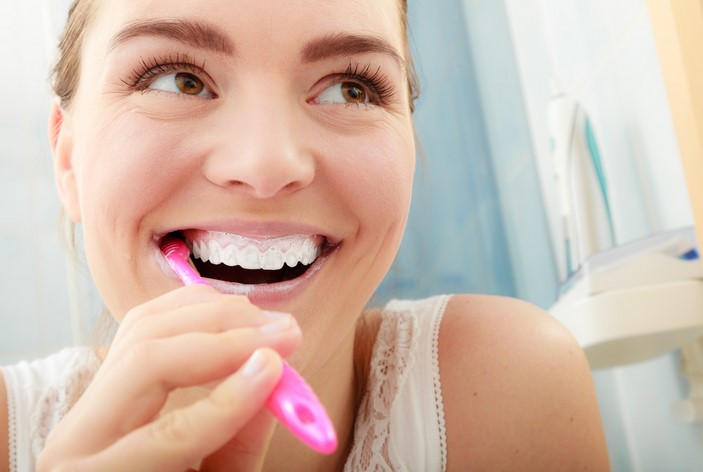
Introduction
Maintaining good oral health is crucial for a confident smile and overall well-being. One common dental issue that many individuals face is the build-up of calculus on teeth. Also known as tartar, calculus is a hard, mineralized deposit that forms on teeth and can lead to various oral health problems if left untreated. To help you maintain a healthy and calculus-free smile, we’ve gathered expert advice from dentists on how to prevent calculus build-up effectively.
Understanding Calculus Build-up
Calculus forms when dental plaque, a soft and sticky film of bacteria, mineralizes over time due to inadequate oral hygiene practices. Plaque constantly accumulates on teeth and, if not removed regularly, hardens into calculus. This can happen both above and below the gumline, making it difficult to remove with regular brushing and flossing alone. The accumulation of calculus can lead to various oral health issues, such as cavities, gum disease, and bad breath.
1. Brushing Techniques
Dentists emphasize the importance of proper brushing techniques to prevent calculus build-up. It’s recommended to brush your teeth at least twice a day using fluoride toothpaste. Use a soft-bristle toothbrush and make sure to brush for at least two minutes each time. Pay close attention to the gumline, as this is where calculus tends to accumulate first. Brushing in a gentle circular motion helps dislodge plaque and prevent its mineralization into calculus.
2. Flossing Regularly
Flossing is an essential component of oral hygiene that often gets overlooked. While brushing can clean the surfaces of your teeth, flossing reaches the areas between teeth and along the gumline where plaque and food particles tend to hide. Flossing helps remove these particles before they have a chance to harden into calculus. Aim to floss at least once a day, preferably before bedtime.
3. Mouthwash and Antimicrobial Rinses
Using an antimicrobial mouthwash or rinse can be an effective addition to your oral hygiene routine. These products can help kill bacteria that contribute to plaque formation and calculus build-up. However, it’s important to note that mouthwash should not replace brushing and flossing, but rather complement them. Consult your dentist for recommendations on which mouthwash is best suited for your needs.
4. Professional Dental Cleanings
Even with the most diligent oral care routine, some calculus may still accumulate over time. That’s where professional dental cleanings come into play. Dentists and dental hygienists have the tools and expertise to remove calculus from hard-to-reach areas using specialized instruments. It’s recommended to schedule a professional cleaning every six months or as advised by your dentist. These regular cleanings not only help prevent calculus build-up but also contribute to overall oral health.
5. Balanced Diet
Believe it or not, your diet plays a significant role in preventing calculus build-up. Foods high in sugar and carbohydrates can feed the bacteria that contribute to plaque formation. Opt for a balanced diet rich in fruits, vegetables, lean proteins, and whole grains. Crunchy fruits and vegetables, such as apples and carrots, can also help naturally clean teeth by stimulating saliva production and removing food particles.
6. Stay Hydrated
Drinking water throughout the day has numerous benefits, including preventing calculus build-up. Water helps rinse away food particles and bacteria that can contribute to plaque formation. Additionally, water keeps your mouth hydrated and encourages saliva production, which contains enzymes that aid in breaking down food particles and maintaining a healthy oral environment.
7. Quit Smoking
Tobacco use, including smoking, can have detrimental effects on oral health. Smoking not only stains teeth but also increases the risk of gum disease and calculus build-up. The chemicals in tobacco can hinder saliva production, leading to a dry mouth that’s more conducive to plaque formation. Quitting smoking not only benefits your oral health but also your overall well-being.
8. Properly Fitting Dental Appliances
If you wear dental appliances such as braces, retainers, or dentures, it’s important to ensure they fit properly. Ill-fitting appliances can create spaces where plaque and calculus can accumulate more easily. Follow your dentist’s instructions for cleaning and maintaining these appliances, and attend regular check-ups to ensure they are in good condition.
Conclusion
Preventing calculus build-up on your teeth is a proactive approach to maintaining optimal oral health. By practicing good oral hygiene, including proper brushing, flossing, and regular professional cleanings, you can effectively minimize the risk of calculus formation. Additionally, adopting a balanced diet, staying hydrated, and avoiding tobacco use can further contribute to a healthy smile. Remember, your dentist is your partner in maintaining your oral health, so don’t hesitate to seek their guidance and recommendations tailored to your specific needs. With consistent care and a commitment to oral hygiene, you can enjoy a bright, healthy smile for years to come.